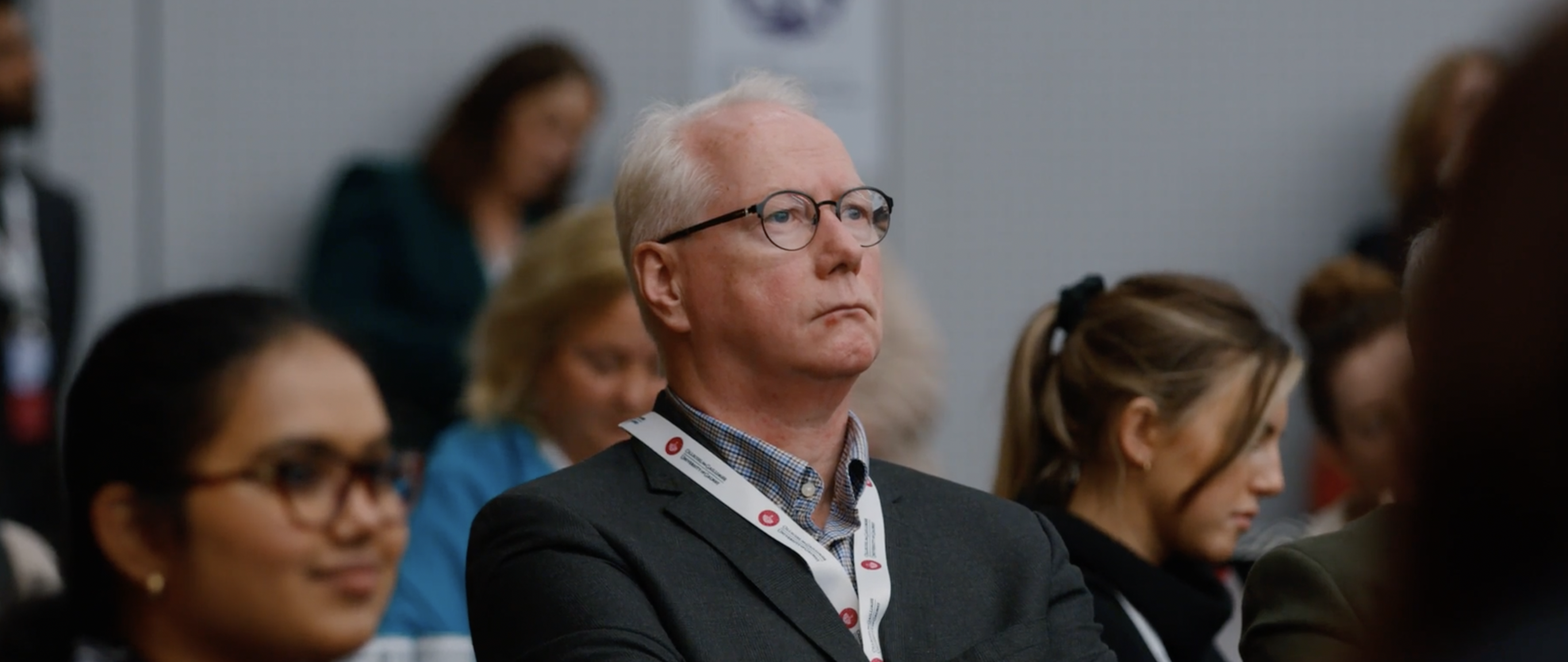
Many of us know Thermo King as an established leader in transport refrigeration, but fewer have heard of the manufacturing giant’s plans to reduce customer carbon emissions by one billion metric tonnes, by 2030. Here, Vice President (EMEA) and University of Galway alum, Cormac Mac Donncha discusses Thermo King’s plans to become a carbon-neutral global enterprise.
Cois Coiribe: Thermo King is a pioneering company in Ireland for carbon neutrality. Why is it so important for you to lead out in this space?
Cormac Mac Donncha: To be honest, I have always had a keen interest in the environment. I love to sail, and this gives me a really good appreciation of our natural environment.
Thermo King have been in Galway since 1976. We have always had somewhat of a dinosaur image, in the city, as an old Galway manufacturing institution of diesel powered, mechanically propelled products. However, like many other Irish manufacturing operations, we have always had many clever product and process engineers among our ranks. We had a desire to show the world that we can innovate and make a very positive impact on the world. We have been to the forefront of CO₂, HVO (Hydrogenated Vegetable Oil) and now, electrically powered transport refrigeration units. We are also developing hydrogen fuelled units and products that run on lower and lower GWP (Greenhouse warming Potential) refrigerants. This is one of many new initiatives that play a crucial role in our plans to become a carbon-neutral enterprise and doing our bit in mitigating climate change.
Roughly 30% of the world’s food goes to waste and up until now, roughly 10% of the world’s carbon emissions have come from transportation. Our products can make a big impact on the world and our Galway team come to work to make a difference! Our latest Trailer unit, the Advancer, designed in Galway, won many global awards for its innovative design. Compared with the previously most efficient unit on global markets, the Advancer cut fuel consumption by 30%. Incidentally, that previous unit, the SLXi was also designed in Galway.
CC: Can you give us a sense of the scale of impact created by Thermo King’s strategy in response to SDGs?
CMD: Thermo King makes up about 20% of the Trane Technologies Corporation, an Irish-registered, US-managed corporation employing 1,000 people in Ireland. Our CEO made a bold statement in 2019 with the decision to reduce our customer footprint by one Gigaton CO₂e (Carbon Dioxide Equivalent) – or one billion metric tonnes of carbon emissions – by 2030. So far, we have delivered 31%.
CC: How does your sustainability strategy affect the bottom line?
CMD: The strategy has several benefits. Obviously, it future-proofs our product range against future regulatory changes. Long before the recent spike in energy costs, we had been working hard to design more efficient products. Now, with energy prices at 300% of what they were, this strategy is proving its success.
We have also made huge improvements to the operation of our plants. This year alone we have seen a 36% reduction in emissions across our manufacturing operations in Ireland, Spain, Czechia and Germany. Our biggest solar panel and roof insulation upgrade project is underway in our Galway plant, with our Czech plant to follow in Q4.
The Thermo King Galway plant was the first in Ireland to achieve ISO 14064 A, Carbon Neutrality certification in 2021. This was followed by TK Shannon in 2022. We will have achieved it across all European operations by the end of 2023. Galway was also the first site to convert to HVO, similar to An Post (Galway) and CRH.
CC: Can you tell us about some of the sustainability initiatives recently introduced to the Thermo King’s Galway factory?
CMD: At Thermo King Galway, we have been harvesting rainwater water for many years and recovering process water through reverse osmosis. The site was one of the first industrial sites in the country to be awarded an IED Industrial Emissions Licence by the EPA (Environmental Protection Agency). It is our future aspiration to become water neutral.
The Galway and Shannon sites have had zero waste-to-landfill since 2014. The local manufacturing team has also devised industry innovations by substituting traditional helium leak-detection technology with a zero-consumption, ultrasonic alternative. We have also made progress in areas that are less obvious, like the elimination of propane use in the soldering process.
One of the more generic developments, available to all industries, has been the introduction of Ignition software to manage process data that we acquire in the consumption of all resources.
CC: What role can collaboration with universities play in reducing greenhouse gas emissions?
CMD: Our product design development teams are heavily engaged with PhD students and academic staff across new technology investigations, especially in the development of new refrigerants and the design of refrigeration cycles, that ensure good product performance, in high ambient locations, using these green gases.
CC: What advice would you give to Mechanical Engineering students at University of Galway?
CMD: Having graduated from the first ever BE ME class from University of Galway (then UCG) in 1983, I joined a small, Irish-owned company (still around today under new ownership), Timoney Technology, building fire engines in Spiddal. Since then, I have worked in companies big and small – Irish-owned, German-Owned, Finnish-owned and US-owned – across a huge range of manufacturing sectors. All I’ll say is, don’t be afraid to try new things. Sometimes you must go sideways in your career to open new opportunities later. Enjoy it! Make sure to cherish the friends that you make in college as they are highly likely to stay with you throughout your life.
Profiles
